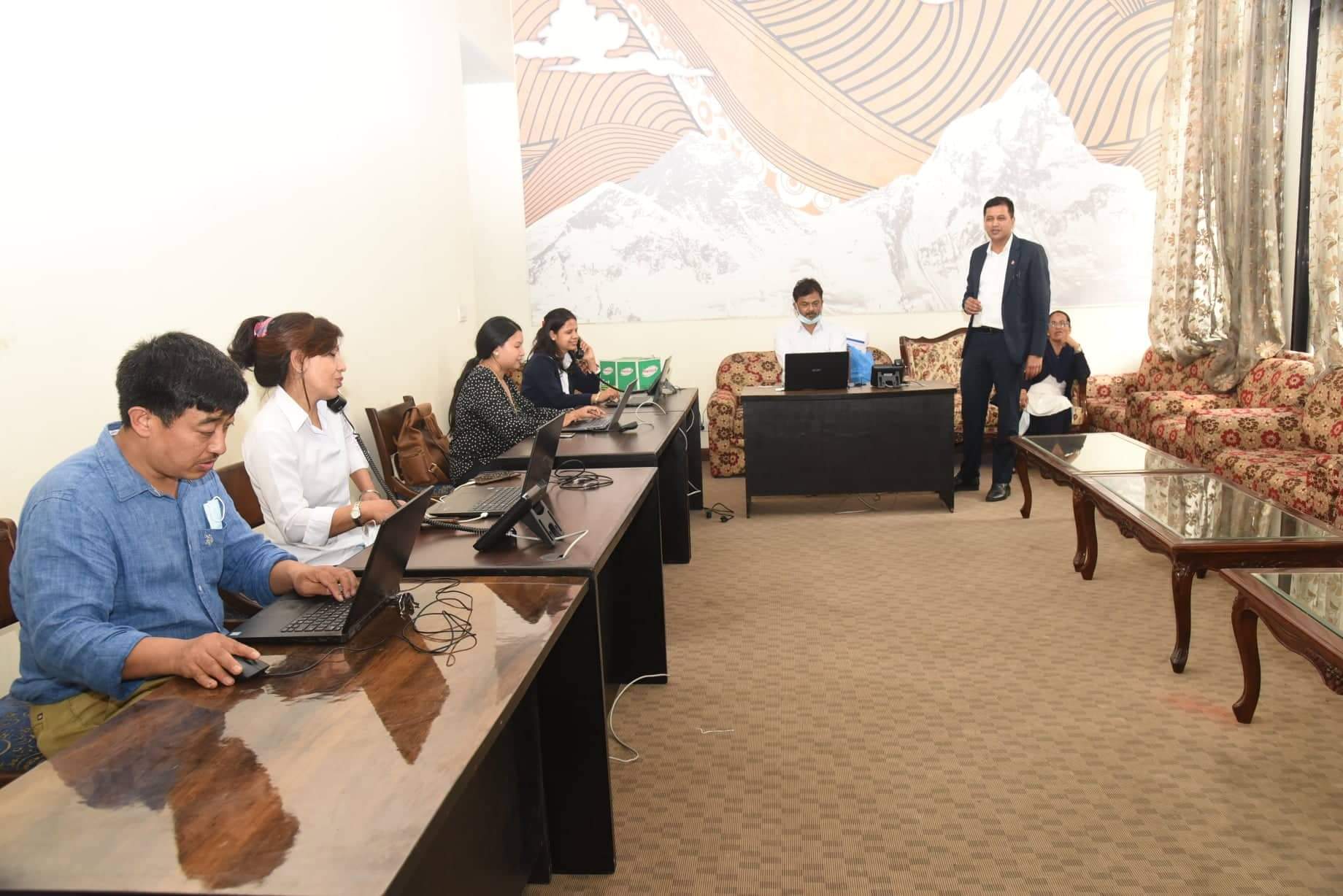Top garbage issue among callers to city office
It is 9:30 am on Thursday and the phone is ringing non-stop at the Kathmandu Metropolitan City “call centre” located at the City Hall on Exhibition Road.

Guna Laxmi Gajurel, 51, one of the center’s three telephone operators, picks up the phone.
“Namaskar is the metropolitan city of Kathmandu, you can lodge your complaints and investigate,” says Gajurel, who wears a white shirt and blue pants – the dress code for municipal staff.
A man from Ward 6, Bauddha records his complaints about the growing number of potholes and the ubiquitous trash.
Gajurel jots down complaints on a blank sheet although there is a computer in front.
“We have not yet been trained in the use of the software. So we took note of people’s problems,” said Gajurel, who was recently transferred to the call center of the municipal directorate of law.
On Monday, the mayor of Kathmandu, Balendra Shah, inaugurated the “call center” with a free number, 16600105511. In three days, the city received a total of 1,299 phone calls: 700 on Tuesday, 399 on Wednesday and 200 Thursday.
The first executive council of the metropolis of May 30 had decided to operate a call center within a week.
Nama Raj Dhakal, the head of information technology at the call center, said 15 people can call the toll-free number at a time, but only three people are deployed to answer callers. He said more people still needed to be hired.
“On the first day, we received a considerable number of calls from the public. More than 80% were about the garbage problem and the foul smell emanating from the piles of garbage,” said Shree Hari Thapa, 45, another call operator who also has no idea how to use the software. .
“Cases are registered automatically. Even the mayor and deputy mayor have direct access to these calls, but we still need to learn how to forward them to the respective departments,” Thapa said.
Most callers were concerned about the halt in garbage collection, the problem of public restrooms, overflowing sewers, muddy roads, dirty water, encroachment of public spaces, lack of parking lots, dog droppings and the threat of stray dog bites.
Other requests included when the water supply to Melamchi will resume, vaccination against Covid-19 and how to partner with KMC to make the toilets accessible to the public.
The city’s response to complaints has long been a cause for concern.
Based on the City’s decision, these complaints would be forwarded to the relevant department for action. For example, complaints about potholes are handled by the Department of Public Construction; problems related to the encroachment of sidewalks, parking problems and illegal businesses by the enforcement department (municipal police); and issues related to tax evasion are handled by the revenue department.
Sudha Shakya, deputy director of the city’s information technology department, says her team has already set up an excellent platform for registering complaints, including caller details such as their phone number. phone and time of call.
Dhakal, the head of the IT department, said the city is working to address immediate issues through the ambulance infrastructure concept. “Of the 1,299 phone calls, more than 1,000 are related to waste issues. The infrastructure ambulances are ready and we are preparing to respond to urgent needs,” he said.
Dhakal added that the problem of drainage, potholes and waterlogging after heavy rains would be solved immediately.


Comments are closed.